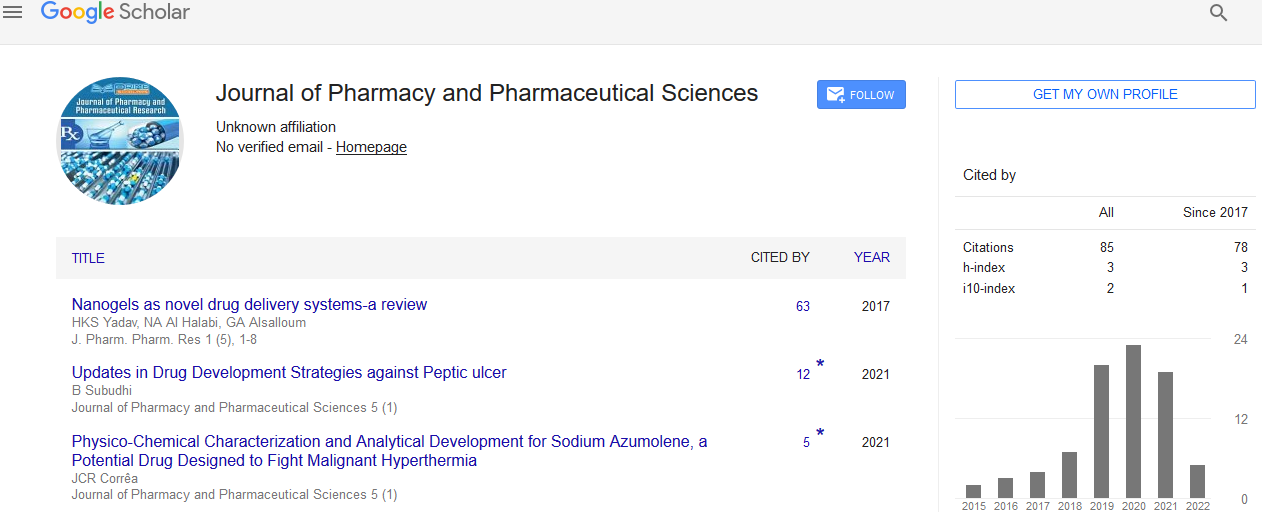Commentary Article - (2022) Volume 6, Issue 2
Clinical Pharmacology contains various Branches of Pharmacodynamics and It Process
Received: 29-Mar-2022, Manuscript No. IPIPR- 22-13399;
Editor assigned: 31-Mar-2022, Pre QC No. IPIPR- 22-13399;
Reviewed: 14-Apr-2022, QC No. IPIPR- 22-13399;
Revised: 19-Apr-2022, Manuscript No. IPIPR- 22-13399;
Published:
26-Apr-2022, DOI: 10.21767/ipipr.6.2.09
Description
Clinical Pharmacology is characterized by “that instruction which
educates, investigates, informs, provides data and on the legal
functions and objectives of the instructions to people and removes
that information from clinical practice”. Clinical Pharmacology
is by nature a translation-based study based on basic medical
science research, participated in research and studies on the attitudes
and effects of drugs in humans, and focused on defining
science into evidence-based medicine. It has a wide range, ranging
from the disclosure of new particles of purpose that impact the
use of drugs to all citizens. The main point of medical science is
the production of information for the effective use of medicines
and the action of ‘evidence-based medicine’. Clinicians of clinical
medicine have sensible preparation that empowers them to
examine evidence and generate new information through more
systematic tests. Clinical physicians should speak to a sufficient
number of temporary patients to be considered, educated and educated,
evaluated and managed by clinically trained professionals.
Their obligations to patients include, yet are not limited to, the
adverse effects of medication, treatments, and toxicology, including
conceptive toxicology, cardiovascular risks, perioperative medicine,
and psychopharmacology. Drug development is important
for medicine; however it has strong financial and political objectives.
To protect individuals and prevent abuse, a few countries
try to control the way drugs are manufactured, sold, and regulated.
Modern clinical pharmacists are also equipped with research
skills. Their methods of dealing with experimental information
may be demonstration and imitation techniques (e.g., mass testing,
indirect impacts shown). Clinical Pharmacology contains various
branches of Pharmacodynamics - how drugs treat the body
and how. This includes cell and sub-atomic ideas, yet in addition
clinical measurements are effective. For example, in addition to
the science of salbutamol, it is a beta2-adrenergic receptor agonist,
yet the high flow rate of both noise practitioners and real
patients, Pharmacokinetics - is what happens to the drug while in the body. This includes the body care structures of the drug, which
are often classified according to the corresponding characters. Assimilation
- a course of medicine that goes through the circulatory
system. Conveyance - a modified transfer of a drug from one place
to another in the human body .Metabolism - the process of how
the drug is used in the human body, Excretion - the process of
how the drug is excreted, occurs in the liver and kidneys. Objective
Prescribing - using the right medication, in the right place, which
includes the correct course and frequency of the patient’s order,
and setting the medication correctly.
Conclusion
Unpleasant side effects of the drug - determining the symptoms of
the drug. Toxicology - controls the harmful effects of living organisms
brought on by synthetics. Drug interactions - an investigation
into how drugs are associated. Two drugs can adversely or indirectly
affect the effects of a drug. Drug development - for the most
part comes a full circle on a few types of clinical precursors and the
presentation of accredited applications to regulatory drugs such as
the US FDA. Atomic Pharmacology - a focus on drug performance
at a sub-atomic level. This is part of pharmacology as a rule, yet
the definite interest lies in the individual as a framework. Pharmacogenomics
- focusing on the human genome to study the interactions
of genetically modified drugs.
Acknowledgement
The author is grateful to the journal editor and the anonymous
reviewers for their helpful comments and suggestions.
Conflict of Interest
The author declared no potential conflicts of interest for the research,
authorship, and/or publication of this article.
Citation: Roshini B (2022) Clinical Pharmacology contains various Branches of Pharmacodynamics and Its Process. J Pharm Pharm
Res Vol.6 No.2:09
Copyright: © Roshini B. This is an open-access article distributed under the terms of the Creative Commons Attribution License,
which permits unrestricted use, distribution, and reproduction in any medium, provided the original author and source are
credited

